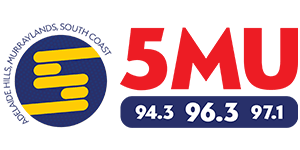Are you feeling a little ‘meh’ or labelled someone a “Debbie Downer” today? Well, guess what? You were unwittingly quoting popular movies, music, or TV shows. We’ve compiled a list of fun phrases most of us commonly use and stole from the big and small screens!
Bucket List
The term “bucket list” exploded in usage after the 2007 movie titled “The Bucket List.” The film, starring Jack Nicholson and Morgan Freeman, introduced the concept of creating a list of things to do before you kick the bucket (a.k.a. die). Surprisingly, the phrase “bucket list” was inspired by the screenwriter’s own list of life goals.
Debbie Downer
Ever encountered a Debbie Downer? This term, synonymous with a party pooper or wet blanket, originated from a character played by Rachel Dratch on Saturday Night Live in 2003. Debbie Downer has a knack for highlighting the negative aspects of any situation, casting a dark cloud over the party.
Meh
Feeling indifferent? You might just say “meh.” The word gained popularity from a 1997 episode of The Simpsons, capturing a nonchalant sense of disinterest. It’s so popular, it even has its own emoji!

Catfish
You’ve probably heard of someone being “catfished.” This term, referring to someone pretending to be someone else online, comes from the 2010 documentary “Catfish.” The movie’s creators drew a metaphor from fishermen who placed catfish in tanks with cod to keep them active—similar to how online deceivers keep us on our toes.
I’ll Be Back
The iconic line “I’ll be back” originated from the 1984 film “The Terminator,” delivered by Arnold Schwarzenegger in his role as the Terminator. In the movie, the line is used as a promise of return before the Terminator’s departure, and it has since become a widely recognized catchphrase used in everyday language to indicate a confident or assured return.
Friend With Benefits
Alanis Morissette’s 1995 song “Head Over Feet” actually coined the term “friend with benefits,” which describes a relationship that mixes friendship with casual intimacy.
Mullet
Back in the ’70s and ’80s, mullets were all the rage, but they were just known as “that wild hairdo.” It wasn’t until 1994 when the Beastie Boys dropped “Mullet Head” that this iconic hairstyle got its catchy name. Before that, “mullet” was a term for someone not too sharp in the smarts department, not a fashion statement!

Schwing
The term “schwing” originated from the 1992 comedy film “Wayne’s World.” In the movie, the character Wayne Campbell (played by Mike Myers) uses “schwing” as an exclamation of excitement or attraction, often in response to something visually appealing. Today, the term is still used playfully in popular culture to express admiration or enthusiasm, especially in reference to attractive individuals or appealing situations.
Going Full Kath & Kim
Originating from the Australian TV show “Kath & Kim,” this phrase embodies a full-on, unapologetic, and often exaggerated attitude or behaviour. Inspired by the show’s characters Kath and Kim, known for their bold and comedic personalities, going “full Kath & Kim” captures a larger-than-life style with a humorous twist.
Regift
Seinfeld was a pro at naming social blunders. Before the 1995 episode “The Re-gifter,” regifting meant giving an extra or unwanted present. But leave it to Seinfeld to flip it—now it’s the art of passing on a gift you didn’t want to someone else. Classic!
So keep schwinging, and don’t forget to put those mullets on your bucket list—it’s a whole Kath & Kim kind of world out there!






